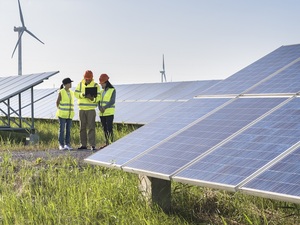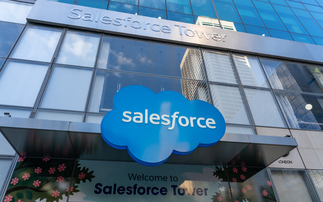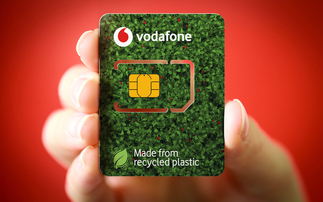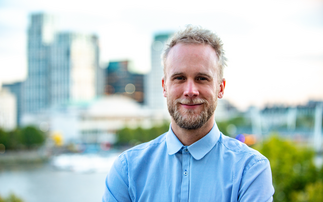
Partner Insight: Vodafone's Nicki Lyons shares key insights from the recent Vodafone Business UK Customer Sustainability Summit on how businesses can harness technology to reach their decarbonisation goals.
Climate change has the potential to seriously disrupt our lives. We are already seeing its impact and without intervention we know that the future we face is even more volatile than the present we inhabit.
Alongside climate change, we are also facing a biodiversity crisis. WWF, one of Vodafone's partners, reports that - on average - the world's monitored populations of wildlife have declined by almost 70 per cent since 1970. The Amazon has suffered four severe droughts in less than eight years.
Doing nothing is not an option for those who want to see our planet thrive. Plus, today's ethics-conscious consumers won't accept inaction. But plotting a path towards net zero can be daunting. Companies will need all the help that they can find if they are to reduce their carbon footprints, while still serving their customers.
Not only can technology help to assess, monitor, and reduce a business's own environmental footprint, but it can help them provide their customers with sustainable options. For example, the rollout of a strong 5G network in the UK could help cut farming emissions by six per cent and food production emissions by 11 per cent. Tools such as carbon calculators give businesses the information they need to make changes with significant impact.
At a recent Vodafone Business UK Customer Sustainability Summit focussing on Innovation for Impact, partners, customers and industry experts came together to discuss how businesses can harness technology to accelerate theirs, and the UK's transition to net zero, and address the challenges of climate change.
Mapping the route

Assessing your impact on the environment is the first step towards reducing it. That means taking a long hard look at your relationship with nature, and the risks that you are exposed to in this area.
Mapping a path to net zero is about action, not neutralisation. Many companies think that by offsetting their own emissions, they have done their bit for the environment. However, as our partner WWF points out, the Science Based Targets Initiative says businesses should reduce emissions by 90 per cent before even thinking about neutralising their residual emissions with permanent carbon removal and storage.
Instead, businesses must set ambitious time-limited targets. The Science Based Targets Initiative (SBTi), guides companies towards targets that tackle global warming while boosting competitiveness. Questions to ask yourself include whether you're relying on virgin raw materials to produce your product, and if so, whether that can be changed. Other facets of your business to consider may include your packaging, shipping, and energy use in facilities such as offices.
Every business has the potential to make a real difference.
Vodafone is a great example. We're now well on the way to de-carbonising our own UK operations by 2027, and achieving our 2040 net zero target, validated by the Science Based Targets Initiative with help from the global climate consultancy, the Carbon Trust.
We reuse, resell, or recycle 99.8 per cent of our electronic waste in the UK, and 96 per cent globally. We're partnering with WWF on an initiative that will see one million phones recycled or reused, with a pound donated to WWF for each one.
Stronger together

Your net zero pathway won't be the same as ours, because every sector and business has different challenges. But no company can act alone when it comes to reducing environmental harms.
As well as ensuring our own house is in order, we know that our customers expect us to provide solutions to help them to reduce their impact on the climate.
We want to support and inspire all our business customers on their environmental journeys.
Our initiatives include device lifecycle management for large business customers, meaning they can lease their hardware and when they return it, we'll reuse or recycle it responsibly. We will soon be launching carbon calculators for our business customers, making it even easier for them to set and measure targets.
If our proposed merger with Three is approved, we'll have the scale to build a best-in-class 5G network, allowing businesses to send vast amounts of data while using much less energy.
We also host inspiring and informative events for our business customers, such as a recent customer summit with Extreme E off-road racing.
All these initiatives stem from our belief that businesses don't have to choose between being sustainable and profitable: the one can improve the other. By acting together, with our tech teams in your corner, I believe we can drive real change.
Nicki Lyons is Chief Corporate Affairs & Sustainability Officer at Vodafone UK.
This article is sponsored by Vodafone






